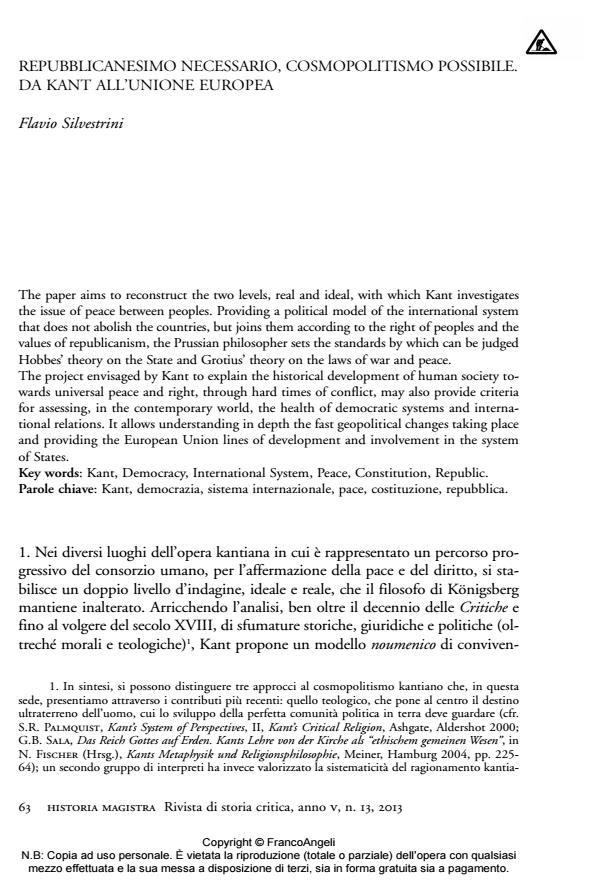Repubblicanesimo necessario, cosmopolitismo possibile. Da Kant all’Unione Europea
Titolo Rivista HISTORIA MAGISTRA
Autori/Curatori Flavio Silvestrini
Anno di pubblicazione 2014 Fascicolo 2013/13
Lingua Italiano Numero pagine 13 P. 63-75 Dimensione file 551 KB
DOI 10.3280/HM2013-013006
Il DOI è il codice a barre della proprietà intellettuale: per saperne di più
clicca qui
Qui sotto puoi vedere in anteprima la prima pagina di questo articolo.
Se questo articolo ti interessa, lo puoi acquistare (e scaricare in formato pdf) seguendo le facili indicazioni per acquistare il download credit. Acquista Download Credits per scaricare questo Articolo in formato PDF

FrancoAngeli è membro della Publishers International Linking Association, Inc (PILA), associazione indipendente e non profit per facilitare (attraverso i servizi tecnologici implementati da CrossRef.org) l’accesso degli studiosi ai contenuti digitali nelle pubblicazioni professionali e scientifiche.
The paper aims to reconstruct the two levels, real and ideal, with which Kant investigates the issue of peace between peoples. Providing a political model of the international system that does not abolish the countries, but joins them according to the right of peoples and the values of republicanism, the Prussian philosopher sets the standards by which can be judged Hobbes’ theory on the State and Grotius’ theory on the laws of war and peace. The project envisaged by Kant to explain the historical development of human society towards universal peace and right, through hard times of conflict, may also provide criteria for assessing, in the contemporary world, the health of democratic systems and international relations. It allows understanding in depth the fast geopolitical changes taking place and providing the European Union lines of development and involvement in the system of States.
Parole chiave:Kant, Democracy, International System, Peace, Constitution, Republic.
Flavio Silvestrini, Repubblicanesimo necessario, cosmopolitismo possibile. Da Kant all’Unione Europea in "HISTORIA MAGISTRA" 13/2013, pp 63-75, DOI: 10.3280/HM2013-013006